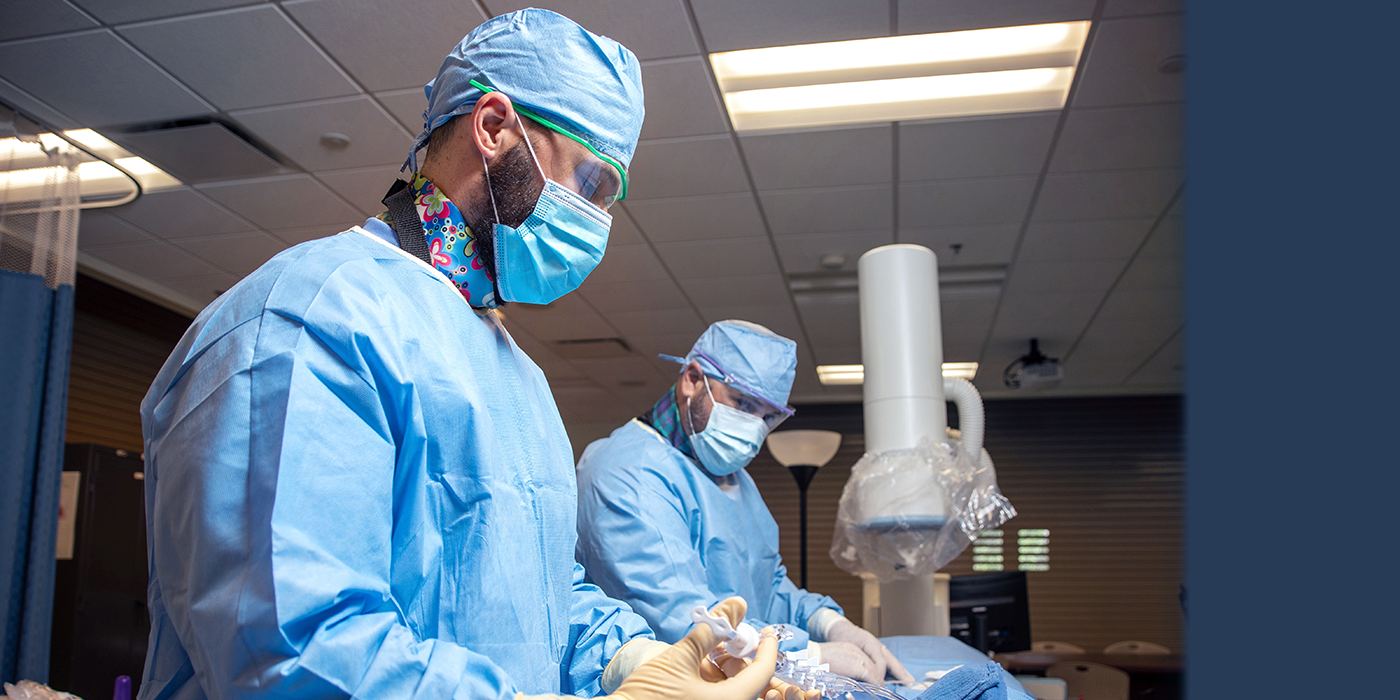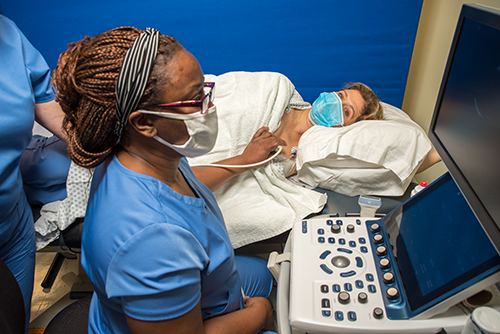Cardiovascular Technology (A.S.)

The Associate in Science (A.S.) in Cardiovascular Technology degree program provides students with an organized curriculum that includes required general education classes and required core professional classes for the invasive and noninvasive cardiovascular curriculum. The registered cardiovascular invasive specialist and the registered cardiac sonographer/registered diagnostic cardiac sonographer are vital members of cardiovascular teams.
 Their primary role is to assist physicians during diagnostic and interventional cardiovascular procedures, monitor patients’ hemodynamic status during the procedure and operate specialized imaging equipment with consideration to radiation dose and safety. In noninvasive cardiology, their role is to perform and assist in noninvasive cardiac procedures such as echocardiograms, exercise treadmill testing, stress echocardiograms and other diagnostic cardiac examinations.
Their primary role is to assist physicians during diagnostic and interventional cardiovascular procedures, monitor patients’ hemodynamic status during the procedure and operate specialized imaging equipment with consideration to radiation dose and safety. In noninvasive cardiology, their role is to perform and assist in noninvasive cardiac procedures such as echocardiograms, exercise treadmill testing, stress echocardiograms and other diagnostic cardiac examinations.
Industry Associations
- Joint Review Commission for Cardiovascular Technology
- Cardiovascular Credentialing International
- American Registry of Diagnostic Medical Sonography
- Alliance of Cardiovascular Professionals
- American Society of Echocardiography
- Society of Diagnostic Medical Sonographers
Additional Costs/Fees: Approximately $8,076
Degree:
Associate in Science (A.S.)
Credit Hours:
77 Credits
Online Program :
No
Program Code: 2125
Financial Aid Eligible :
Yes
hcic@fscj.edu
(904) 646-2300
Certifications/Licensing
After successfully completing the program, students will be eligible to take national certification exams.
Note: If you are considering employment in a state other than Florida, please visit https://www.fscj.edu/academics/license-disclose to determine if this program will meet the selected state’s requirements to sit for licensure or certification testing.
Accreditation
The Cardiovascular Technology Program is accredited by the Commission on Accreditation of Allied Health Education Programs upon the recommendation of Joint Review Committee on Education in Cardiovascular Technology. The program instruction is consistent with curriculum frameworks as administered by the Florida Department of Education. Graduates are eligible to take national certification examinations.

To contact CAAHEP: 9355 113 St. N. #7709
|
Student Success Rates
| Class Year | Retention Rate | Registry Pass Rate | Employment Rate |
|---|---|---|---|
| 2022 | Invasive - 17% Adult Echo - 100% | Invasive - 100% Adult Echo - 100% | Invasive - 100% Adult Echo - 100% |
| 2023 | Invasive – 79% Adult Echo –46% | Invasive – 100% Adult Echo – 100% | Invasive – 100% Adult Echo -100% |
| 2024 | Invasive – 69% Adult Echo – 88% | Invasive – 73% Adult Echo – 100% | Invasive – 100% Adult Echo – 93% |
Program Notice
Drug screen, background checks, uniforms, physical and textbooks.
